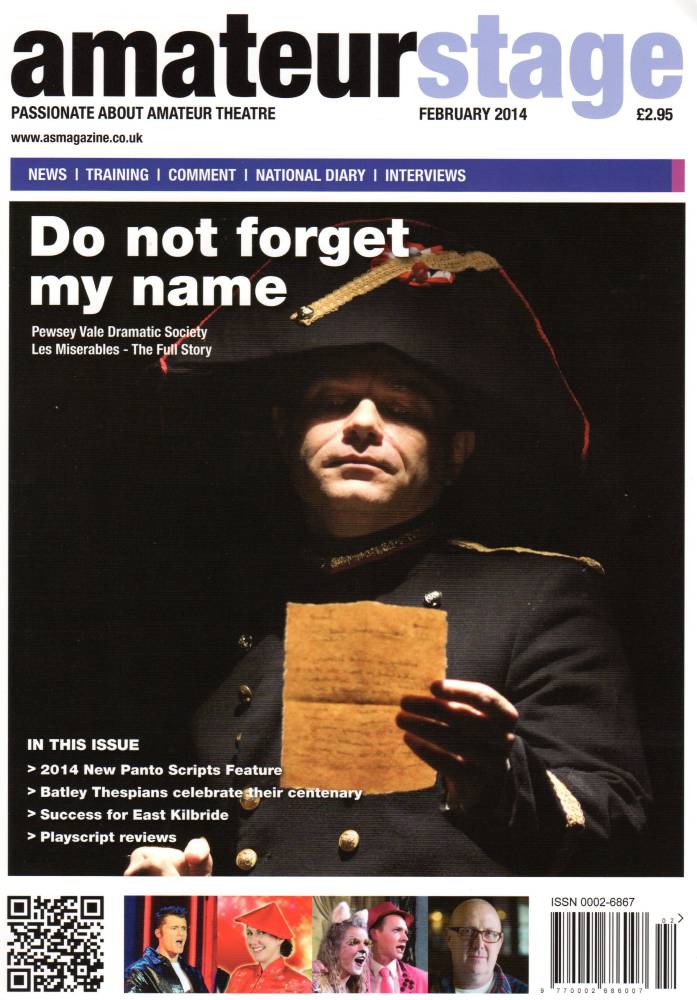|
PUSS IN BOOTS by Bob Heather from the February 2014 issue of |
|
 |
|

|
TITLE: Puss in Boots AUTHOR: Bob Heather PUBLISHER: Lazy Bee Scripts CAST: 11 plus chorus We are in the lovely village of Gusset-in-the-Valley where it is time to pay the taxes to "That nasty evil Giant that lives in the great big castle just outside the village, and squashes people if they don't pay their taxes". Mark Miller has just returned from the reading of his father's will but the Giant's henchman, Squire Skweezum, is disappointed to learn that Mark has only inherited the mill and no cash. Now Mark is going to have to learn how to use the mill but fortunately Puss is on hand to teach him. It does come as something of a surprise when Mark realises that his cat can talk but, as Puss tells him, there hasn't really been much to say before now. Our dame arrives in the form of Masie, Mark's aunt, who has come to lend a hand. As Masie introduces herself we enter the world of innuendo, though I must admit that it is skilfully done. As if the Giant isn't enough the King and Queen arrive demanding the payment of royal taxes. The silver lining, however, is their daughter, Rose, who instantly becomes an object of desire for Mark. As he and Puss discuss the trials of love, Skweezum overhears and realises that he can make money out of a talking cat. He just has to find a way to get his hands on it. As luck would have it he stumbles upon Grabbit and Runn, a pair of idiots that he employs as bailiffs and whom he will also use to steal Puss. Meanwhile, Puss's plan to sort out Mark's love life is to tell the King and Queen that Mark is in fact Count Monte DuPonte and he lives in the big castle - the one just outside the village. When the action transfers there we encounter ghosts, but no Giant. It seems that the former owner is now moved on but he left the castle to - ta da - Mark's father, Windy Miller, who isn't dead after all! Once the story gets going it is actually quite engaging and, with the fast pace and all the comings and goings, this panto has a farce type quality that makes it enjoyable for both children and adults. | |
|
|
